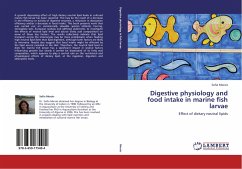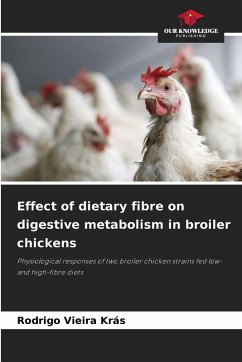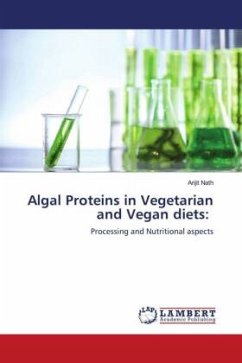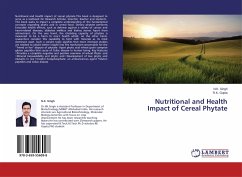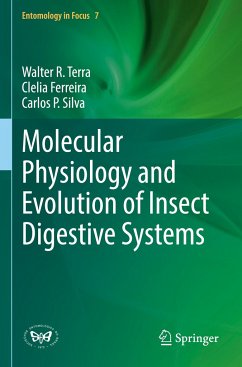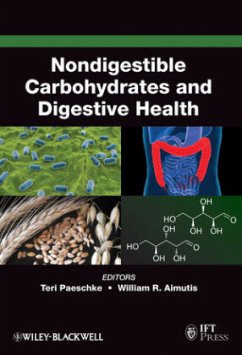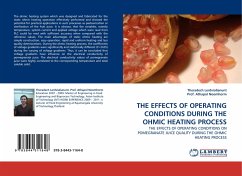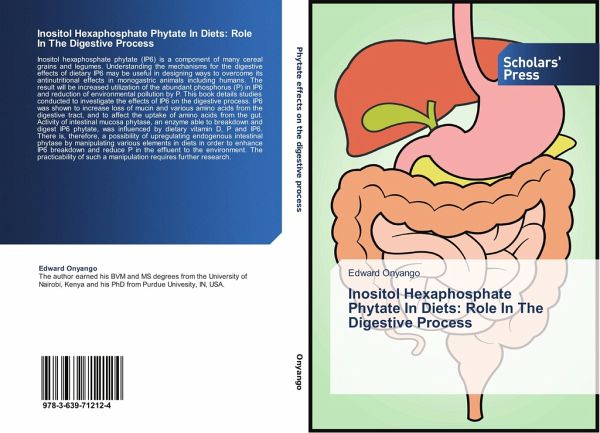
Inositol Hexaphosphate Phytate In Diets: Role In The Digestive Process
Versandkostenfrei!
Versandfertig in 6-10 Tagen
45,99 €
inkl. MwSt.

PAYBACK Punkte
23 °P sammeln!
Inositol hexaphosphate phytate (IP6) is a component of many cereal grains and legumes. Understanding the mechanisms for the digestive effects of dietary IP6 may be useful in designing ways to overcome its antinutritional effects in monogastric animals including humans. The result will be increased utilization of the abundant phosphorus (P) in IP6 and reduction of environmental pollution by P. This book details studies conducted to investigate the effects of IP6 on the digestive process. IP6 was shown to increase loss of mucin and various amino acids from the digestive tract, and to affect the ...
Inositol hexaphosphate phytate (IP6) is a component of many cereal grains and legumes. Understanding the mechanisms for the digestive effects of dietary IP6 may be useful in designing ways to overcome its antinutritional effects in monogastric animals including humans. The result will be increased utilization of the abundant phosphorus (P) in IP6 and reduction of environmental pollution by P. This book details studies conducted to investigate the effects of IP6 on the digestive process. IP6 was shown to increase loss of mucin and various amino acids from the digestive tract, and to affect the uptake of amino acids from the gut. Activity of intestinal mucosa phytase, an enzyme able to breakdown and digest IP6 phytate, was influenced by dietary vitamin D, P and IP6. There is, therefore, a possibility of upregulating endogenous intestinal phytase by manipulating various elements in diets in order to enhance IP6 breakdown and reduce P in the effluent to the environment. The practicability of such a manipulation requires further research.



